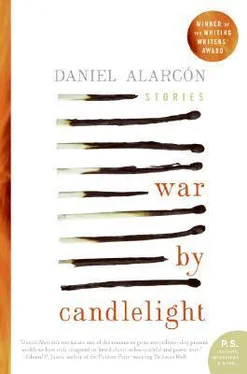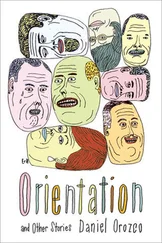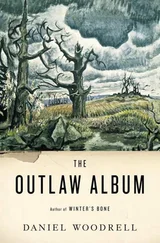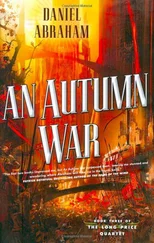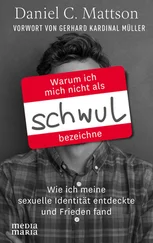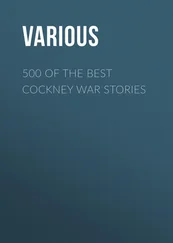So we stayed there, on the other side of the valley from the cemetery, on the foothills above the martyred town. Parachutes slipped through the heavy clouds, swinging gently in the passing wind. No one came to see the town or its graves. We waited. We were there when the visitor came.
His name was Alejo. He carried a bundle of clothes wrapped in a blanket. He’d come from over the mountains, from the city. “I’ve been walking,” he told me, “for two weeks.” Alejo yawned as he sat, and I heard his bones creaking. “I have news.”
“Tell it then,” I said.
“There are twenty thousand dead in the city.”
“Twenty thousand?” I asked.
The visitor nodded. He took off his shoes.
“And in the north?”
“Seven thousand when I left.”
“The south?”
“At last count, sixteen thousand.”
My head felt light. “On the coast?” I asked, though I knew no one on the coast.
“There are no towns left standing.”
“My God,” I said.
His face was cracked by the wind. He rubbed his feet. Ximena brought us tea in earthen bowls. We sat quietly.
“What are people saying?” I asked.
He cupped his bowl in his calloused hands. He let the steam kiss his face. “They’re hardly speaking at all.”
It was getting cold.
From the pile of clothes, Mariela brought our visitor a jacket. “Guess where this jacket came from!” she asked cheerfully. “Guess!”
The visitor smiled gently and shrugged his shoulders. We were all bundled and wearing the bright clothing of survivors.
“France!” my daughter said, beaming.
I smiled. “We counted thirteen parachute drops in one day,” I said.
“Thirteen?”
My son and I had collected nearly fifty parachutes. We would build tents with them, for when the rains come.
We sat in silence for a moment.
“What do we have for our visitor?” I called to the children. We’d been inundated with aid, some of it useful, some of it less so. A box of oversize bathing suits from Holland. Postcards from New York that wished us well. A package of neckties from Denmark. I’d picked a red one, which I used to tie back my hair. Efraín offered Alejo a selection of ties. Erlinda would have been proud. “Please take one,” he said, bowing ceremoniously.
The visitor picked an orange tie and smiled at me. He wore it as a headband, then picked a shorter green one, which he tied on Efraín. “We’re a tribe now,” the visitor said, laughing. Efraín smiled too.
It was overcast, the sky a color of bone. The fog sank from the silver mountains. “How many did you lose here, friend?” the visitor asked.
We could still see the cross. I pointed across the muddy plain at my resting wife. “Only one,” I said.
Efraín had picked out headbands for his sisters. My children were a row of Danish neckties. “Only one,” they said in a chorus.
I. Oxapampa, 1989
The day before a stray bomb buried him in the Peruvian jungle, Fernando sat with José Carlos and together they meditated on death.
They were childhood friends. Three decades before, you might have found them together on the steps of the cathedral, sharing a piece of bread, tossing pebbles at the stray dogs that came to lick the crumbs at their feet. Or on hands and knees, playing marbles in the dusty courtyard of José Carlos’s house on Tarapacá. Such trivial things come to mind now, Fernando thought. A lifetime’s supply of meaningless memories. He could make out the dark blue tint of the sky above. Later it would rain.
They sat at the edge of the campsite. Here, hidden in a tangle of vines and leaves and wrapped in a tarp, were the explosives. Fernando and José Carlos had slipped away from the others, had chosen this place to talk. They shared a rolled cigarette and a stale piece of bread, and agreed both were the worst they’d ever tasted. The bread especially. “Tougher than flesh,” José Carlos said. “Worse than prison food.”
“Worse than your mother’s cooking,” Fernando added. He watched for a smile spreading across his friend’s face.
But José Carlos looked worn, unshaven, and grim, wearing a frayed white shirt and a straw hat that unraveled at its edges. His eyes drifted, unfocused, and his hands, crisscrossed with nicks and scratches, twitched almost imperceptibly. Fernando watched him closely, looking for answers in José Carlos’s face, wondering how they had come to this place and why. Though he had tried to forget, it was no use: the heat was murder, the air unbreathable. A kind of paralysis gripped Fernando those last days. He found himself unable to concentrate on the present. Instead his brain was clogged with memories half-eaten by moths and flies, incomplete records of moments in no semblance of order: Arequipa at night, circa 1960, in the middle of the lonely street looking up, all sky and silence; the women who had cared for him, from birth through childhood and beyond; his wife, Maruja, his daughter, Carmen, fragile, beautiful, and above all, his.
It couldn’t help to think too much of those he left behind. Each of the previous four mornings Fernando had woken to the prickling tiptoes of insects meandering among legs or arms. Each day, as the jungle closed in on them, they took to the machetes for a half hour in the late afternoon, hacking and swinging and beating it back. The jungle was their greatest enemy. Unattended food vanished in minutes, with living things bursting from the soil to retrieve it, digest it, destroy it. It was not life that he thought of in the jungle, beneath the forest’s thick canopy, in the darkness.
“Does this place have a name?” José Carlos wondered aloud. “Have the mapmakers made it here yet?”
Of course they had not. Oxapampa had a name, but it was a three-day hike from here, and along the way they had passed nothing but forest and rising heat.
It was Fernando who suggested they name it. But what kind of name did this patch of earth deserve? Indigenous? Revolutionary? Should they call it Tarapacá, in honor of their old street?
They settled on Paris, where poets lived, and ate their bread in silence.
In the life he had left behind José Carlos was a professor of philosophy, a life he would survive to reclaim. Fernando could see him trying to laugh but unable. “I’m not scared that they’ll catch me,” José Carlos said. “I’m not afraid to die.”
“To die in Paris!” Fernando said.
José Carlos frowned. “I’m not joking, Negro.”
Fernando, his clothes soaked with sweat, felt his body melting into the infinite jungle. José Carlos was right: the time for jokes had passed. These conversations about death made him tired. It was all anyone ever spoke of. What point could there be in it? This moment was all they had worked for in the last fifteen years. The country was at war. The crisis they had foreseen in their youth had finally arrived. It was too late to give up, too late to change course. They were less than three weeks from the New Year and a new decade. Fernando was forty-one years old. His daughter, Carmen, whom he would never see again, was two and a half.
“Me neither,” he said. “I’m not afraid to die.”
II. War by Candlelight, 1983
They had a plan if they ever came under fire: “scatter.”
Not sophisticated or elegant, but real.
This is a coward’s war, Fernando thought, when at the first sign of trouble, I am told to run breathlessly into the heart of the jungle, without stopping or looking back.
“You’re no good to us dead, Fernando. We have enough martyrs.”
There was too much talk of comradeship and brotherhood for those instructions to sit well. He did his work, hoping it would never come to that. But he was touring the camps in the North, in San Martín, when shots were fired. There was no time to think. An army battalion had stumbled upon them in the steep, forested hills. No tactics or strategies involved, only the logic of a war fought blindly in the darkness of the jungle: a scared soldier fires a shot; a frightened rebel shoots back. Both are too young to do little else but bury their doubts in violence, and suddenly everyone is running and the forest is aflame.
Читать дальше
